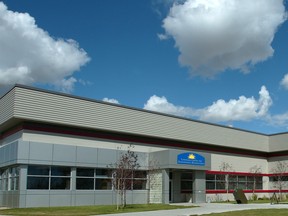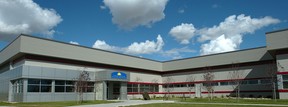
Article content
The province has announced a new medical training program in Lethbridge aimed at easing the shortage of physicians in rural Alberta
The University of Calgary is partnering with the University of Lethbridge to develop the new training centre.
Article content
The province’s 2024 budget committed $43.2 million in capital funding for the facility, and $55.6 million for operating expenses for the training centre in Lethbridge, as well as one in Grande Prairie, where the city’s Northwestern Polytechnic is partnering with the University of Alberta’s Faculty of Medicine and Dentistry.
Advertisement 2
Article content
The province is also providing $126 million to support the overall physician training expansion.
“By investing in these new rural medical training centres in Grande Prairie and Lethbridge, we are taking a very significant step in alleviating the rural physician shortage,” Advanced Education Minister Rajan Sawhney said Wednesday at a news conference at the University of Lethbridge.
“We know that increasing medical training opportunities in rural areas is a proven means of increasing physician recruitment and retention in those areas.”
Less than seven per cent of Alberta physicians currently work in rural areas. In 2023, Advanced Education provided $1 million to a working group to explore the feasibility of expanding Alberta’s medical training outside of Alberta’s programs at the universities of Calgary and Alberta, said Sawhney.
Dr. Digvir Jayas, president and vice-chancellor of the University of Lethbridge, said investing in a program that recruits local students and trains them in areas across southern Alberta, will lead to more doctors practising in those areas. He cited the example of the partnership between Vancouver’s University of British Columbia and Prince George’s University of Northern British Columbia, saying that partnership has resulted in most of its medical graduates serving rural and remote areas in B.C.
Article content
Advertisement 3
Article content
“This is a historic day,” Jayas said during the news conference.
University of Calgary president Dr. Edward McCauley said the program means future physicians will no longer have to travel to Calgary for training.
“Currently, only four per cent of students who train in big cities practise in rural communities, but if we recruit locally and train locally, we’ll help to address the shortage,” said McCauley.
Recommended from Editorial
Three-quarters of students end up practising medicine close to where they train, he added.
There are 30 spots for undergraduate medical students at the University of Lethbridge, as well as 36 residency positions there.
Jayas said the first medical students are expected to start training at the University of Lethbridge during the 2025-26 school year.
“I would say in about six years we would have practising doctors,” he said. “After the students complete their medical education and when they’re in the residency program, they will be providing medical support under the supervision of the practising doctors.”
Advertisement 4
Article content
A vacant University of Lethbridge building will be renovated into a medical school and multidisciplinary teaching clinic. Each general practitioner in the teaching clinic will care for roughly 1,200 patients, and the clinic will also operate after regular hours, said the province.

Upwards of 650,000 Albertans are searching for a family doctor, the Alberta Medical Association (AMA) estimates. Primary Care Network data estimates 43,000 of those are in the Lethbridge region.
A March letter signed by numerous southern Alberta physicians said the new program in Lethbridge presents an opportunity to reverse the trend of the evaporating pool of students choosing family medicine.
“Evidence shows when prospective family doctors know they can train where they live — in smaller communities — and will be provided with grounded experiences inside of rural communities, they are likely to remain in a community of that size to begin their careers,” they said.
Article content





